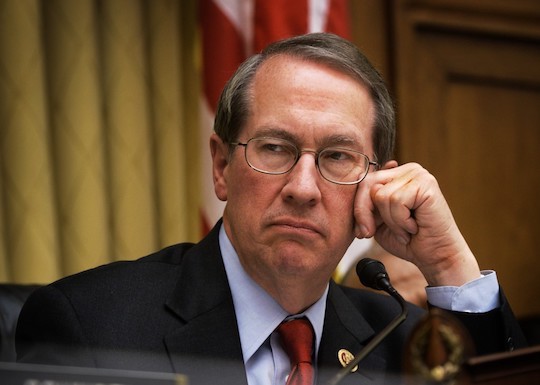Update: Midway through writing this post, I learned that House Republicans had reversed course and decided to strike the Goodlatte Amendment from their rules changes. As of this writing, the OCE will remain the same. I stand by the Close Reading.
Yesterday, over the objections of Speaker Paul Ryan, the House Republican Conference voted to curtail the power of the Office of Congressional Ethics and bring it under control of the House Ethics Committee. The change was not debated and only publicly announced late Monday afternoon—to almost universal condemnation, including from president-elect Donald Trump. You can see why he objected. If your promise is to “drain the swamp” of Washington corruption, weakening the office of ethics on the day before the new Congress starts is a bad look. But what if restricting the authority of the OCE to investigate, making its findings secret, and making it subject to a partisan committee actually strengthened it? You could convince people that’s what you were doing, if you framed it just right. Or you could just erect a wall of bullshit to hide behind. Rep. Bob Goodlatte went with option two in his statement on the change, which is the subject of today’s Close Reading.
Goodlatte is widely considered the architect of these rules changes, which will substantially reduce ethics oversight at a time when Republicans’ health care and infrastructure plans are likely to attract armies of corporate lobbyists. This seems like an inauspicious moment to make it harder to investigate pay-for-play. As the first notable act of the new Congress, it’s terrible optics. That’s why Goodlatte takes pains to assure us he is actually making the OCE stronger:
The amendment builds upon and strengthens the existing Office of Congressional Ethics by maintaining its primary area of focus of accepting and reviewing complaints from the public and referring them, if appropriate, to the Committee on Ethics. It also improves upon due process rights for individuals under investigation, as well as witnesses called to testify. The OCE has a serious and important role in the House, and this amendment does nothing to impede their work.
That first sentence is a masterpiece of phony causality. How, exactly, does one “strengthen” the OCE by “maintaining” its focus? It seems like Goodlatte is saying he’s making it stronger by keeping it the same, which is a weird reason to amend it. The content of this statement borders on nonsense, but Goodlatte relies on the syntax to fool readers.
The construction “[verbs] by [verbing]” is recognizable and strong, and it can often convince us something is happening when it really isn’t. I am strengthening the energy security of the United States by eating tacos. These goldfish improve the quality of my writing by maintaining a serene work environment. Statements like these don’t really make sense, but our brains try to believe them in order to conform the meaning of content to the meaning of syntax.
Throughout this paragraph, Goodlatte plays on our desire for words to make sense together. For example, his amendment “improves upon due process rights.” What does this mean? In actuality, the Goodlatte amendment raises the standard of evidence the OCE must meet in arguing that congresspeople have violated rules of ethics. It makes it harder to convict.1 Few would argue that members of Congress aren’t getting away with enough, however, so Goodlatte goes with the vague but definitely good verb “improve.” Never mind that the concept of improving upon rights—with what? privileges?—grinds the gears of our language centers.
The problem with all this vagueness and cognitive dissonance is that the mind keeps trying to resolve it toward what the reader knows is true. The writer is a reader, too, and Goodlatte2 knows the argument here is a real stretch. It wants to snap back toward honesty. By the end of the paragraph, the author has abandoned his contention that gutting the OCE somehow strengthens it, and instead falls back on the more tenable position that these changes don’t really change anything. “The OCE has a serious and important role in the House,” he writes, “and this amendment does nothing to impede their work.”
Sic, dude—this amendment does nothing to impede its work. Also, I find that hard to believe. Like any work of bullshit, this paragraph ends on a strong note of denial—one that gives the lie to the claim we started with. Okay, we’re not actually strengthening the OCE, this paragraph seems to say. But we’re not hurting it, either. We’re just changing it in ways that keep it the same. We’re, uh, draining the swamp.





This post was but just snarky and fun, but useful. I read a ny times piece today that made no sense when quoting this. Thanks.